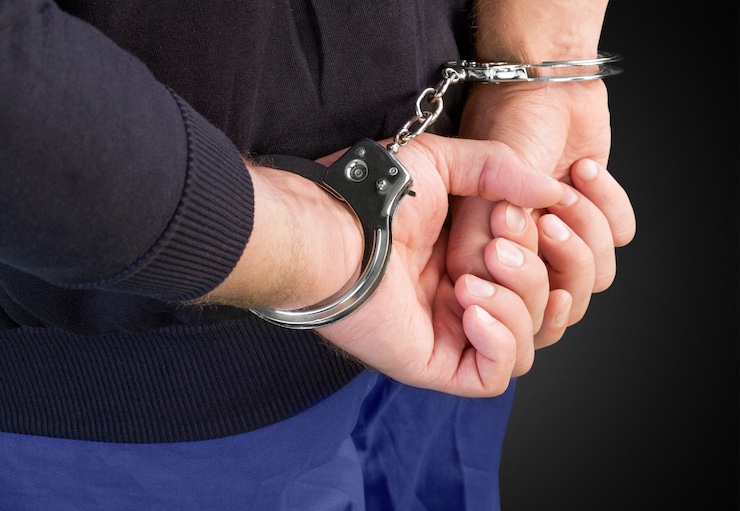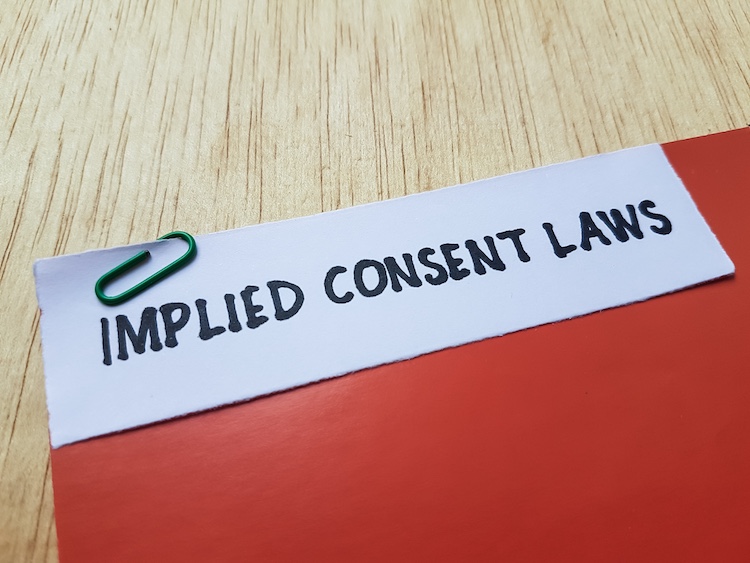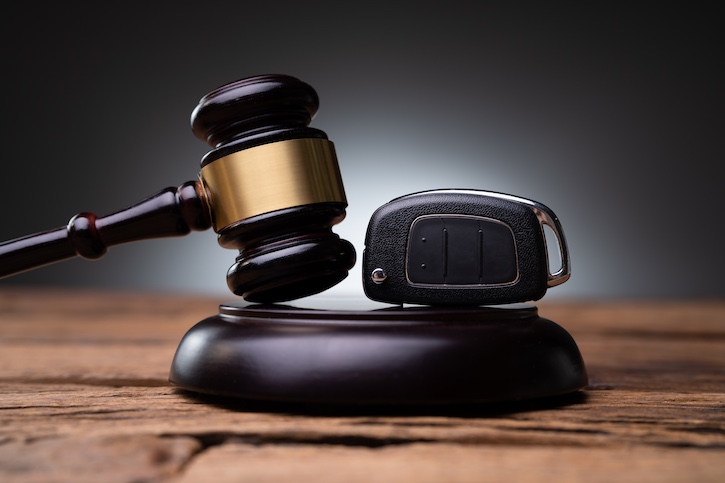What Licensed Professionals in Indiana Should Know About DUI and Licensing Boards
At Rathburn Law Office P.C. P.C., we focus exclusively on defending individuals charged with DUI in Indiana. With decades of experience, our firm understands how a drunk driving arrest can affect not only your freedom but also your professional license and livelihood. We approach each case with precision, challenging the evidence and protecting the rights of our clients at every stage. Our goal is simple: to provide a strong legal defense and help safeguard your future.
A DUI conviction in Indiana affects more than a driver’s license or court record. For professionals across the entire state, a drunk driving arrest can trigger reviews by licensing boards, disciplinary hearings, and lasting damage to careers. Whether the case involves alcohol impairment, prescription drugs, or other substances, the consequences are severe and often permanent. Understanding how impaired driving laws connect to professional licenses is the first step in protecting both employment and reputation.
In this blog, you will learn how a DUI impacts professional licenses in Indiana, what factors increase the risk of discipline, and why working with an experienced Indianapolis DUI defense attorney is critical to protecting your career.
Understanding DUI in Indiana
A DUI in Indiana is a serious criminal offense that affects both driving ability and professional licenses.
Definition of DUI in Indiana
Indiana law defines DUI, also called Operating While Intoxicated, under Indiana Code § 9-30-5. A person commits this offense when operating a motor vehicle while intoxicated by alcohol, prescription drugs, or other drugs. Intoxication can include alcohol impairment, impaired driving from controlled substances, or a combination of both.
Blood Alcohol Concentration Limits
The legal BAC limit for most drivers is 0.08 percent. For commercial drivers, the limit is 0.04 percent. Drivers under 21 face stricter standards with a limit of 0.02 percent. These thresholds reflect how alcohol and drugs affect driving ability and put the driver, passengers, and other people on the road at risk.
Testing and Arrest Procedures
Law enforcement officers use field sobriety tests and chemical testing to determine impairment. A blood test or breath test can confirm alcohol concentration. Refusal to submit to chemical testing violates Indiana’s implied consent law (§ 9-30-6-1) and results in an automatic driver’s license suspension. The arresting officer may also note signs such as slurred speech, unsafe vehicle operation, or failure to follow directions during the stop.
Penalties for DUI Offenses
Penalties depend on the circumstances of the offense. A first conviction can bring fines, court costs, driver’s license suspension, and possible jail time. Repeat offenders and DUI offenders involved in a motor vehicle crash with injury or death face enhanced penalties under Indiana Code § 9-30-5-5. These outcomes can have a major impact on both personal freedom and professional licenses.
Why Professional Licenses Are at Risk
A DUI offense can threaten professional licenses because it raises questions about judgment, responsibility, and compliance with state law.
Professional Standards and Conduct
Most licensing boards in Indiana expect license holders to avoid criminal offenses. A conviction for impaired driving shows poor judgment and lack of control, both of which conflict with professional standards. Even one incident of alcohol impairment or drug-related driving can signal risk to employers and the public.
Mandatory Reporting and Review
Many boards require professionals to report arrests or convictions for DUI. The Indiana Professional Licensing Agency (IPLA) can receive reports from employers, courts, or law enforcement officers. Once notified, the agency may review the driver’s license suspension, BAC levels, and other details of the case to determine if disciplinary action is necessary.
Major Factor in Disciplinary Decisions
Boards view drunk driving as a major factor when evaluating a professional’s fitness to practice. Repeat offenders, impaired drivers involved in motor vehicle crashes, and those who plead guilty to alcohol or drug offenses face greater scrutiny. These reviews can lead to penalties such as fines, probation, or suspension of professional licenses.
Impact Across the Entire State
The risk is not limited to one city or county. Professionals across the entire state of Indiana, from healthcare providers to commercial drivers, face the same level of review. In most cases, the consequences extend beyond the court system and affect long-term employment and career stability.
The Disciplinary Process in Indiana
When a licensed professional in Indiana is convicted of DUI, the case often triggers a review process that can affect professional licenses. This process is separate from criminal court and focuses on professional conduct.
Notification of Licensing Boards
Licensing boards can be notified in several ways. Some professionals must self-report DUI arrests or convictions. In other cases, law enforcement officers, courts, or employers may send reports directly to the Indiana Professional Licensing Agency. Once notified, the agency opens a case file for review.
Administrative Hearings
The next step often involves an administrative hearing. Boards such as the Indiana State Board of Nursing or the Medical Licensing Board review the evidence, including BAC levels, field sobriety tests, and the arresting officer’s report. The hearing allows the professional to present a defense or explanation.
Possible Disciplinary Actions
If the board determines a violation of professional standards, it can impose penalties under Indiana Code § 25-1-9. Penalties may include fines, probation, suspension of the professional license, or permanent revocation. Repeat offenders or those involved in motor vehicle crashes with injury or death face more severe outcomes.
Long-Term Consequences
Disciplinary action can extend beyond the immediate penalties. Many cases result in lasting records that affect future employment, license renewals, and public trust. A DUI conviction becomes a major factor in how licensing boards and companies view the professional’s fitness to continue practicing in Indiana.
Aggravating Factors that Increase Risk
Certain circumstances make DUI offenses more severe in Indiana and increase the risk to professional licenses. These factors often lead to stronger penalties in court and harsher discipline from licensing boards.
Repeat Offenders
Professionals with prior DUI convictions face greater consequences. Repeat offenders are viewed as higher risk, and licensing boards consider this a major factor when deciding on suspension or revocation of a professional license.
DUI with Injury or Death
A DUI offense that involves a motor vehicle crash with injury or death carries enhanced penalties. These cases often lead to felony charges, long jail time, and strong disciplinary action against professional licenses.
Child Passengers
Driving under the influence with a child in the vehicle increases penalties. Indiana law treats the presence of a child as an aggravating factor that shows disregard for safety. Licensing boards often respond with stricter sanctions in these cases.
Refusal of Chemical Testing
Refusing a blood test or breath test violates Indiana’s implied consent law. This leads to automatic driver’s license suspension and signals noncompliance to licensing agencies. A refusal may be seen as an attempt to avoid detection, adding risk to disciplinary outcomes.
Long-Term Employment Consequences
A DUI conviction in Indiana can affect employment for years, making it difficult for professionals to maintain stable careers. The costs extend beyond court penalties and reach into professional and financial life.
Financial Burden
A DUI offense is extremely expensive. Fines, court fees, mandatory programs, and higher insurance premiums create a heavy financial load. Many cases also involve loss of income during license suspension or jail time, further adding to the burden.
Impact on Career Advancement
Employers may view a DUI conviction as a sign of poor judgment or risk. Professionals with convictions often face barriers to promotion or new opportunities. In fields that demand public trust, a criminal offense can end advancement completely.
Job Loss and Termination
In most cases, companies have policies that allow termination after criminal offenses. A DUI conviction can lead to immediate dismissal, especially for positions involving driving, safety, or direct responsibility for others. This is common for CDL drivers, healthcare workers, and law enforcement officers.
Lasting Record
A DUI conviction leaves a permanent mark on criminal records and professional licenses. Future employers can see the conviction in background checks. Licensing boards may also consider past DUI offenses during renewals, making it harder for professionals to sustain long-term careers across the entire state.
Defense Strategies for Protecting Professional Licenses
A strong legal defense is essential for professionals in Indiana who face DUI charges and risk to their licenses. The right approach can reduce penalties and protect long-term careers.
Hiring a DUI Defense Attorney
The first step after being arrested is contacting a DUI defense lawyer. An attorney can guide the process, explain legal options, and defend both the criminal case and the professional license. Early action improves the chance of reducing charges or penalties.
Challenging Test Results
Defense strategies often focus on testing procedures. Field sobriety tests, breath tests, and blood tests can all be challenged if errors occurred. Faulty equipment, improper administration, or mishandled samples may weaken the case against the driver.
Examining Officer Conduct
The arresting officer’s actions during the stop are important. An attorney may review whether the officer had reasonable suspicion to stop the vehicle and whether proper procedures were followed. Any violation of rights can lead to evidence being excluded from trial.
Negotiating Outcomes
In many cases, attorneys work to negotiate outcomes that protect professional licenses. Options may include diversion programs, reduced charges, or agreements that avoid a conviction. These outcomes help minimize the impact on both employment and licensing boards.
Advocacy Before Licensing Boards
A DUI defense attorney can also represent professionals before licensing boards. Advocacy may involve presenting evidence of rehabilitation, compliance with treatment, or positive work history. This approach can influence boards to impose lighter penalties instead of full suspension or revocation.
Protect Your Professional License After a DUI With Rathburn Law!
If you have been arrested for DUI in Indiana and are worried about how it may affect your professional license, you do not have to face the process alone. The consequences of impaired driving charges can extend far beyond court penalties, placing your livelihood, reputation, and future employment at risk. Our team at Rathburn Law Office P.C. P.C. has the knowledge and experience to challenge the evidence, represent you before licensing boards, and build a defense that protects both your record and your career.
Contact us at 800-800-8000 for a free case review today!










